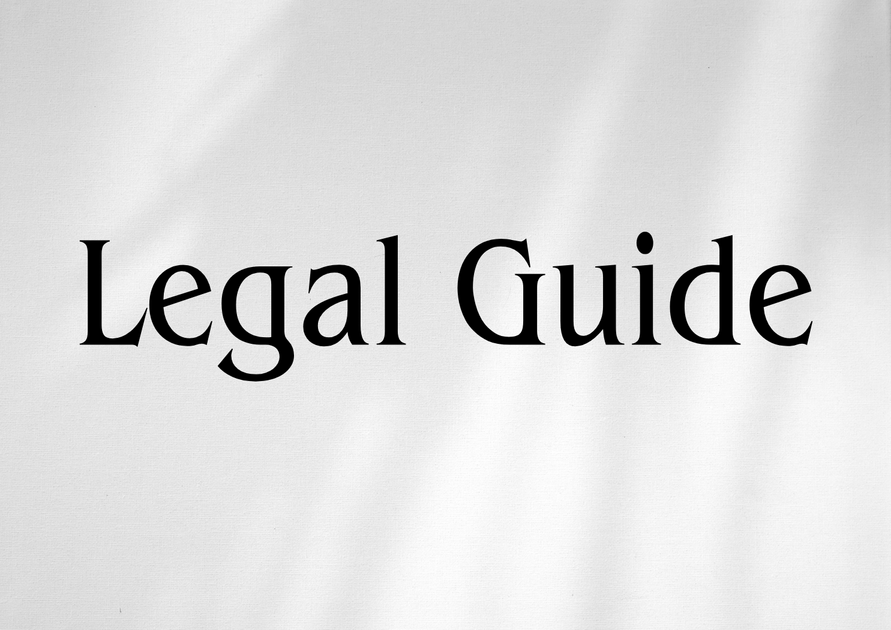Introduction: Navigating Company Formation in Qatar
Qatar’s strategic growth as a commercial hub in the Gulf Cooperation Council (GCC) has made it a focal point for UAE-based businesses seeking regional expansion or diversification. Given the evolving nature of both Qatari and UAE legal frameworks, understanding the intricate requirements and documentation for company formation is not only crucial for compliance, but also for long-term business success. In recent years, regulations governing cross-border investments, particularly those impacting UAE entities and expatriate executives, have undergone significant modernization. This article provides an authoritative consultancy-grade analysis of the required documentation for company formation in Qatar, set against the legal contexts and regulatory updates relevant to the UAE business community. We draw on official sources, including the UAE Ministry of Justice, Ministry of Human Resources and Emiratisation, and the Qatar Financial Centre Regulatory Authority, delivering insights tailored to C-suite executives, corporate counsel, HR managers, and business owners aiming to ensure seamless and compliant market entry into Qatar.
Table of Contents
- Qatar Company Law and Regulatory Overview
- Categories of Required Documentation
- Detailed Breakdown of Required Documents for Company Formation
- Procedural Insights: From Preparation to Submission
- Compliance Risks and Strategic Recommendations
- Comparative Analysis: UAE vs Qatar Requirements
- Case Study: UAE-Based Technology Firm Expanding to Qatar
- Conclusion: Key Takeaways and Best Practices
Qatar Company Law and Regulatory Overview
Legal Framework for Company Formation in Qatar
The legal foundation for company formation in Qatar is principally embodied in the Qatar Commercial Companies Law No. 11 of 2015 (as amended by Law No. 8 of 2021). The law is supervised by the Ministry of Commerce and Industry (MOCI). For companies registering in the Qatar Financial Centre (QFC), the Qatar Financial Centre Companies Regulations apply.
Both UAE and non-UAE nationals are entitled to establish companies in Qatar, subject to sectoral restrictions and shareholding requirements. Notably, the 2021 amendments have further liberalized foreign ownership, allowing up to 100% foreign equity participation in many sectors, subject to Ministry approval.
Key Regulatory Authorities
- Ministry of Commerce and Industry (MOCI) – Oversees commercial registration; validates legal documents.
- Qatar Financial Centre (QFC) – Offers an alternative regulatory environment for international firms; reduced documentation in select cases.
- Ministry of Justice (Real Estate Registration Department) – For property-related documentation and authenticating powers of attorney.
- Ministry of Interior – Security clearance and immigration documents.
Implications for UAE Businesses
For UAE-based investors and expatriate executives, Qatar’s updated legal landscape offers both opportunity and regulatory complexity. Among the critical aspects, the harmonization of certain documentation—such as attestations and translations—under Qatar’s treaty obligations with the UAE streamlines certain processes but still necessitates strict compliance.
Categories of Required Documentation
Before delving into document specifics, it is vital to understand the three broad categories:
- Corporate Documents: Proving the existence and status of the applicant entity or shareholders (e.g., Certificate of Incorporation, Memorandum of Association).
- Personal and Identity Documents: Relating to directors, shareholders, authorized representatives (e.g., passport copies, power of attorney).
- Regulatory/Compliance Documents: Satisfying statutory and sectoral approvals (e.g., trade name reservation, lease agreements, sectoral consents).
Detailed Breakdown of Required Documents for Company Formation
1. Corporate Entity Documents
- Certificate of Incorporation (or Equivalent): Official document demonstrating the legal existence of the parent or investing company, issued by the relevant corporate registry (in the UAE, typically the Department of Economic Development).
- Memorandum and Articles of Association: The founding agreement and corporate governance charter. For UAE companies, ensure Arabic or official English translation, notarization, and attestation by the UAE Ministry of Justice, Ministry of Foreign Affairs, and the Qatari Embassy in Abu Dhabi.
- Board Resolution or Shareholders’ Resolution: Confirming the intent to open a company in Qatar and appointing authorized signatories; requires attestation as above.
- Power of Attorney: Appointing the representative for company formation; notarized, attested, and translated.
2. Identity and Personal Documents
- Passports: Valid copies of all directors and shareholders, with notarized translation if not in Arabic or English.
- National ID (if Qatari resident): For any local partners or Qatari stakeholders.
- Passport photographs: As per specifications required by the Ministry of Interior.
3. Regulatory and Compliance Documents
- Trade Name Reservation Certificate: Application via the MOCI online portal; confirmation document required for subsequent steps.
- Lease Agreement: For the official business address; must be registered with the Real Estate Registration Department.
- Sectoral Approvals: For regulated sectors (healthcare, education, financial services, etc.), prior approval from competent ministries is mandatory.
- Bank Reference Letter: For foreign corporate shareholders, a letter from the principal bank confirming good standing.
- Specimen Signature Forms: For authorized signatories.
Visual Recommendation: Insert a process flow diagram illustrating stepwise document collection, attestation, and submission to highlight sequence and reduce ambiguity.
Procedural Insights: From Preparation to Submission
Attestation and Legalization Pathways
Unique to GCC cross-border formations, documentation originating in the UAE requires multi-stage attestation for legal validity in Qatar:
- Notarization in the UAE (Dubai Courts Notary Public, for example).
- Attestation by UAE Ministry of Justice.
- Attestation by UAE Ministry of Foreign Affairs & International Cooperation.
- Legalization by the Qatari Embassy in Abu Dhabi.
- Final authentication by the Ministry of Foreign Affairs in Qatar.
Practical Note: Missing even one layer of attested signatures or stamps leads to document rejection and process delays.
Translation Requirements
If documents are in languages other than Arabic (and sometimes English), certified translations by authorized translators are mandatory. Translators must be recognized by either the Qatari Embassy or the Ministry of Justice in Qatar. For UAE businesses, utilizing Dubai Courts-certified translation services ensures compliance.
Submission Channels
- Manual Submission: Physical documents are submitted at MOCI counters or designated offices.
- Digital Submission: Increasingly, Qatar’s Single Window platform (https://www.sw.gov.qa/) allows electronic uploading of select documents, but originals may still be required for final certificate issuance.
Checklist Table: Required Documents and Their Attestation Path
| Document | Notarization | UAE MOJ | UAE MOFAIC | Qatar Embassy | Qatar MOFA |
|---|---|---|---|---|---|
| Certificate of Incorporation | ✓ | ✓ | ✓ | ✓ | ✓ |
| Memorandum & Articles | ✓ | ✓ | ✓ | ✓ | ✓ |
| Board Resolution | ✓ | ✓ | ✓ | ✓ | ✓ |
| Power of Attorney | ✓ | ✓ | ✓ | ✓ | ✓ |
| Passports/ID | |||||
| Bank Letter | ✓ | ✓ | ✓ | ✓ | |
| Lease Agreement |
Note: This table is illustrative and should be updated as per specific sectoral or case-based requirements.
Compliance Risks and Strategic Recommendations
Risks Associated with Non-Compliance
- Document Rejection: Any deficiency in attestation or translation—especially in high-value sectors—results in outright rejection of applications.
- Process Delays: Incorrect sequencing or missing documentation causes extended approval timelines, impacting market entry strategies and contractual obligations.
- Penalties: Submission of falsified, incomplete, or unauthenticated documents may invite regulatory fines under United Arab Emirates Federal Decree-Law No. 20 of 2018 and related anti-fraud provisions in Qatar.
For UAE-based professionals, the dual compliance obligation (UAE-origin and Qatari receipt) can be a notable pitfall. The broader compliance environment for UAE businesses has evolved in line with Federal Decree-Law No. 32 of 2021 on Commercial Companies, which sets higher standards for documentation and record-keeping for international activities.
Compliance Strategies
- Engage licensed legal advisors familiar with both UAE and Qatari regulatory nuances.
- Develop a dedicated compliance calendar mapping out required notarizations and attestations to avoid expiration of document validity periods (commonly 3–6 months).
- Implement internal quality reviews to ensure that all translations bear the required certifications and that no document lags in the legalisation chain.
- Regularly consult the circulars from the UAE Ministry of Justice and Ministry of Human Resources to keep abreast of attestation rule changes.
Table: Penalties for Non-Compliance (Illustrative)
| Non-Compliance Issue | Applicable Law | Potential Penalty |
|---|---|---|
| Submission of forged documents | UAE Federal Decree-Law No. 20 of 2018, Qatar Penal Code | Imprisonment, fines up to QAR 500,000 |
| Late submission | Qatar Commercial Companies Law | Financial penalties, rejection of application |
| Incorrect documentation | Both jurisdictions | Delay in market entry, reputational risk |
Comparative Analysis: UAE vs Qatar Company Formation Requirements
Side-by-Side Requirements Comparison
| Requirement | UAE (Latest Law 2023-2025) | Qatar (Law No. 11 of 2015, as amended 2021) |
|---|---|---|
| Foreign Ownership | Up to 100% in most sectors (Federal Decree-Law No. 26 of 2020) | Up to 100% with MOCI approval (post-2021 amendment) |
| Registered Office | Mandatory; lease or ownership | Mandatory; lease must be registered |
| Identity Documents | Passports, Emirates ID | Passports, Qatari ID (if applicable) |
| Attestation/Legalization | Notarization, MOFAIC as required | Notarization, cross-border MOFAIC, embassy legalization |
| Sectoral Approvals | Federal/Emirate-level authorities | Ministry-specific; sometimes QFC |
Visual suggestion: Comparative infographic or checklist summarizing these differences for quick executive reference.
Case Study: UAE-Based Technology Firm Expanding to Qatar
Background
ABC Technologies DMCC, a mid-sized UAE technology company, plans to establish its first Qatari subsidiary. The board mandates in-house counsel to manage cross-border documentation, aiming for minimal disruptions and maximum speed-to-market.
Step 1: Documentation Preparation
Counsel reviews template resolutions and secures new originals of Certificate of Incorporation and Memorandum of Association from DMCC. These are notarized in Dubai, then attested at the UAE Ministry of Justice and Ministry of Foreign Affairs, before final legalisation at the Qatari Embassy in Abu Dhabi.
Step 2: Translation and Compliance Review
All documents are translated into Arabic by a Dubai Courts-certified translator. Internal compliance officers double-check document expiry dates and notary seals.
Step 3: Submission and Monitoring
File submission is completed via the MOCI’s online window, with hard copies provided on demand. Receipt is acknowledged, and real-time tracking reduces the risk of application lapses.
Resolution
Due to rigorous document preparation and overlap in UAE-Qatar legal requirements, company formation is approved in 30 days—15 days faster than industry average. The case highlights the tangible benefits of legal counsel-driven compliance strategies.
Conclusion: Key Takeaways and Best Practices
The process of company formation in Qatar for UAE businesses necessitates a strategic, diligent approach to documentation. While liberalization measures and digital platforms have eased some steps, the underlying legal requirements remain robust. The UAE’s own regime—modernized by Federal Decree-Law No. 32 of 2021 and aligned with international best practice—demands that businesses adopt integrated compliance frameworks. In the coming years, further GCC regulatory convergence is expected, but the prudent approach lies in early, proactive engagement with cross-jurisdictional legal counsel, ongoing regulatory monitoring, and the maintenance of rigorous internal documentation standards. Organizations that embed such strategies will not only achieve regulatory compliance but also competitive agility as the business landscape evolves.
For clients and executives, our recommendation is to treat Qatar market entry as a legal project—one that benefits from structured planning, expert localisation, and robust quality assurance. Engage qualified legal advisors in both jurisdictions, utilize dynamic compliance checklists, and commit to continuous legal education for your teams to stay ahead of upcoming changes.
For real-time updates and tailored advisory, connect with our legal consultancy team or consult official portals including the UAE Ministry of Justice and Qatar’s MOCI for the latest documentation requirements.




